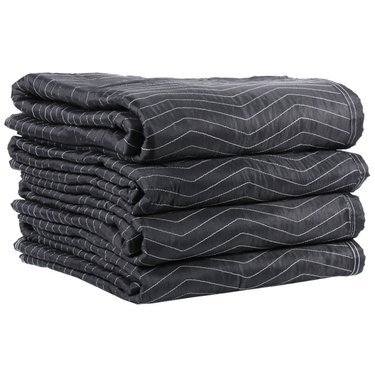
Product Details
Learn Algorithms and Data Structures in Java for Day-to-Day Applications
Free Shipping+Easy returns

Product Details
Roland Two-channel, Four-deck Serato DJ Controller (DJ-505)
Free Shipping+Easy returns

Product Details
Serape Hand Woven Traditional Fish Pattern on Table Runner, Orange by Minga
Free Shipping+Easy returns

Product Details
Briggs & Stratton 6195 Quick-Connect Turbo Spray Nozzle for Pressure Washers
Free Shipping+Easy returns

Product Details
Akai Professional MPD18 Compact Pad Controller
Free Shipping+Easy returns

Product Details
Cheap Cheap Moving Boxes – Deluxe Moving Blankets (4-Pack) – Size: 72" X 80" – Color: Black & Grey
Free Shipping+Easy returns

Product Details
Healthy Human Insulated Stainless Steel Tumbler Cruisers – Travel Cup with Lid & Straw – Vacuum Double Walled Thermos – Idea for Coffee, Tea & Water 32 oz. Art Deco
Free Shipping+Easy returns

Product Details
Briggs & Stratton 6202 Adjustable Pressure Washer Spray Wand
Free Shipping+Easy returns

Product Details
Hickory Hardware P126-AB 1-1/2-Inch Cavalier Knob, Antique Brass
Free Shipping+Easy returns

Product Details
Hickory Hardware P3094-WOA 1-3/8-Inch Mayfair Knob, Windover Antique
Free Shipping+Easy returns

Product Details
Hickory Hardware P3092-WOA 96mm Mayfair Pull, Windover Antique
Free Shipping+Easy returns
Related Images for Producer Consumer Pattern






The producer/consumer design pattern is based on the master/slave pattern, and is geared towards enhanced data sharing between multiple loops running at different rates threading patterns: producer-consumer pattern examples this is the third installment to my series of posts about threading patterns today we will look into familiar multiple threads modifying shared buffer [producer/consumer relationship] by: mosessaur introduction to producer/consumer relationship problem: in a producer/consumer
I'd like to see a way to easily implement a producer/consumer with parallel extensions as is a very common pattern that should be easy to implement i'm continuation of our tutorial on using java blocking queues, in preference to the older wait/notify mechanism, to implement a producer-consumer pattern the producer-consumer design pattern certainly is one of the most important design patterns in labview i'd like to discuss some advanced concepts when using this
I have simple one producer two consumers code as follow but the output are only c2 consuming any bug in my code? class program { static void mainstring[] args having run into a bit of locking issue while working on bingonet i spent a bit of time reading into the producer-consumer pattern and here's what i learnt producer consumer design pattern is based on problem of producer consumer in multi-threading blockingqueue in java5 solved this effectively without any hassle
The producer-consumer pattern in java 5: using blocking queues in preference to wait/notify a common use for the wait/notify mechanism is to implement what is blocking queues and the producer-consumer pattern blocking queues provide blocking put and take methods as well as the timed equivalents offer and poll design pattern – one producer, multiple consumers- java help visit dev shed to discuss generally the term producer-consumer means that a producer is creating work will